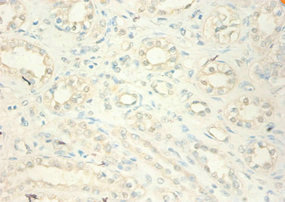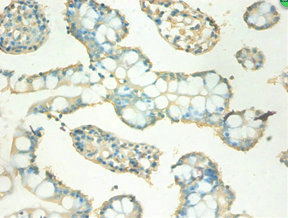Full Product Name
Rabbit anti-Homo sapiens (Human) MT2A Polyclonal antibody
Alternative Names
MT2A antibody; CES1 antibody; MT2 antibody; Metallothionein-2 antibody; MT-2 antibody; Metallothionein-2A antibody; Metallothionein-II antibody; MT-II antibody
Immunogen
Recombinant Human Metallothionein-2 protein (1-59AA)
Immunogen Species
Homo sapiens (Human)
Conjugate
Non-conjugated
The MT2A Antibody (Product code: CSB-PA17354A0Rb) is Non-conjugated. For MT2A Antibody with conjugates, please check the following table.
Available Conjugates
| Conjugate |
Product Code |
Product Name |
Application |
| HRP |
CSB-PA17354B0Rb |
MT2A Antibody, HRP conjugated |
ELISA |
| FITC |
CSB-PA17354C0Rb |
MT2A Antibody, FITC conjugated |
|
| Biotin |
CSB-PA17354D0Rb |
MT2A Antibody, Biotin conjugated |
ELISA |
Purification Method
>95%, Protein G purified
Concentration
It differs from different batches. Please contact us to confirm it.
Buffer
Preservative: 0.03% Proclin 300
Constituents: 50% Glycerol, 0.01M PBS, PH 7.4
Tested Applications
ELISA, IHC
Recommended Dilution
| Application |
Recommended Dilution |
| IHC |
1:20-1:200 |
Storage
Upon receipt, store at -20°C or -80°C. Avoid repeated freeze.
Lead Time
Basically, we can dispatch the products out in 1-3 working days after receiving your orders. Delivery time maybe differs from different purchasing way or location, please kindly consult your local distributors for specific delivery time.
Usage
For Research Use Only. Not for use in diagnostic or therapeutic procedures.








